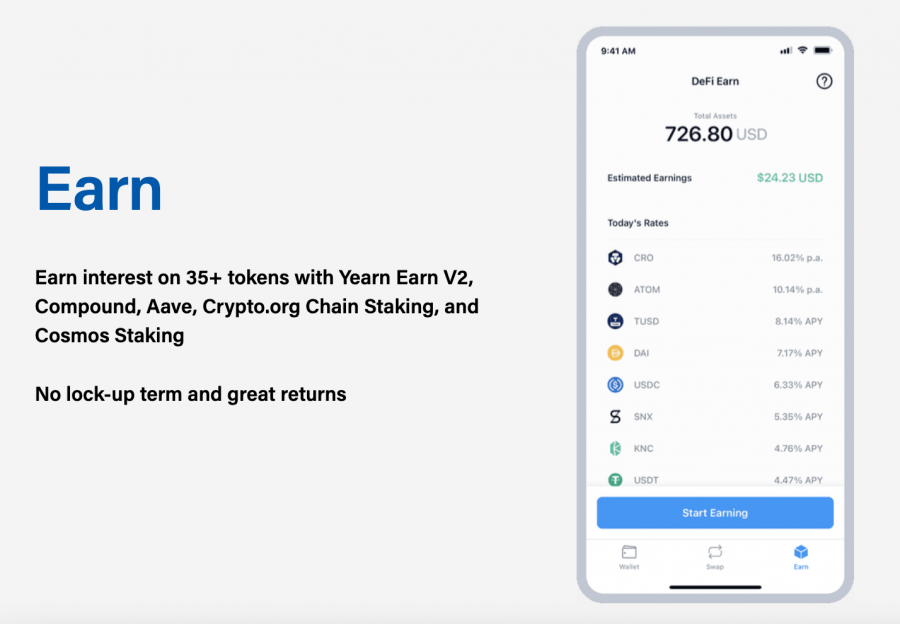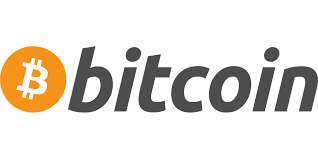Decentralized finance (DeFi) has taken the crypto market by storm over the past few years, offering a way for market participants to conduct services without a centralized intermediary. DeFi wallets are an essential mechanism within this growing sector, allowing investors to store their holdings safely and with high accessibility.
This guide will discuss the best DeFi wallets on the market, highlighting what these wallets are and how they work, before showing you how to get started with a top DeFi wallet provider today – all in just a few minutes.
The Best DeFi Wallets List
If you’re looking to invest in cryptocurrency in a decentralized manner or wish to generate a yield on your idle holdings, then opening a DeFi crypto wallet is a crucial component to your success. Below are some of the best DeFi wallets available today, which we will review in this guide:
- DeFi Swap – Overall Best DeFi Wallet for 2022
- Crypto.com DeFi Wallet – Top DeFi Crypto Wallet with Low Fees
- ZenGo – DeFi Dapp Compatible Wallet
- Trust Wallet – Best DeFi Wallet for Asset Selection
- MetaMask – Popular DeFi Wallet with 30 Million Active Users
- Coinbase Wallet – User-Friendly DeFi Wallet with Decentralized Web Browser
- Trezor – Best DeFi Wallet for High Security
- Ledger – Leading DeFi Wallet Provider for Cold Storage
- Argent – Best DeFi Wallet for Staking
The Best DeFi Wallets Reviewed
Much like the best DeFi exchanges, DeFi wallets offer a way to remove the middleman from specific transactions, reducing fees and preserving anonymity. Although there are pros and cons to both centralized and decentralized wallets, more and more people are veering towards the latter due to their many plus points.
So, without further ado, let’s dive in and review the eight best DeFi wallets on the market right now:
1. DeFi Swap – Overall Best DeFi Wallet for 2022
 Our pick when it comes to the best DeFi wallet for 2022 is DeFi Swap. DeFi Swap is a decentralized exchange (DEX) that allows users to swap tokens and generate interest payments passively, all without a centralized intermediary. The exchange does this through a handy browser-based platform, with no requirement to complete any KYC checks.
Our pick when it comes to the best DeFi wallet for 2022 is DeFi Swap. DeFi Swap is a decentralized exchange (DEX) that allows users to swap tokens and generate interest payments passively, all without a centralized intermediary. The exchange does this through a handy browser-based platform, with no requirement to complete any KYC checks.
Although DeFi Swap isn’t a DeFi wallet in the traditional sense, the platform does offer many of the same services that these wallets do. Token swapping is one of the most popular services, as DeFi Swap supports over 50 different coins, including the platform’s native ‘DeFi Coin’ token.
During this DeFi wallet review, we also noted that users can participate in DeFi Swap’s yield farming mechanism, which offers four different tiers. Each tier has its own lock-up period and APY – with the platinum tier offering a yield of up to 75% per year. You can even earn a share of the commissions generated on the DeFi Swap platform by becoming a liquidity provider and placing your tokens in one of the liquidity pools.
As touched on previously, DeFi Coin (DEFC) is the exchange’s native token, which can be used to swap into other tokens or for yield farming. However, one of DeFi Coin’s most appealing characteristics is that token holders can generate a regular stream of passive income simply by storing the token in their crypto wallet.
This income stream is derived from DEFC’s innovative ‘static rewards’ system, which involves placing a 10% tax on buy and sell orders. Half of the tax income is distributed back to DEFC holders as a reward, whilst the other half is placed into DeFi Swap’s liquidity pools.
Looking ahead, DeFi Swap’s development team has some significant upgrades in the works, such as a mobile app and a section for trading NFTs. This would undoubtedly make DeFi Swap one of the best DeFi apps on the market due to the platform offering many of the same services that top DeFi wallets do.
2. Crypto.com DeFi Wallet – Top DeFi Crypto Wallet with Low Fees
Although DeFi Swap is our number one pick, another great option is the Crypto.com DeFi wallet. As the name implies, this wallet is provided by Crypto.com – one of the best crypto exchanges when it comes to fees and asset selection. The Crypto.com DeFi wallet is non-custodial and available to download for free from the App Store or Google Play.
As a non-custodial wallet, the Crypto.com wallet offers complete control over your holdings and your private key. The wallet supports over 100 crypto-assets, including many of the best altcoins and DeFi tokens. When sending any of these assets to another wallet, Crypto.com allows you to choose which speed you’d like to utilize – enabling you to save money on network fees.
The Crypto.com DeFi wallet also has a ‘DeFi Earn’ feature, which allows you to generate a yield on over 35 supported tokens. Our Crypto.com DeFi wallet review also noted that you can provide liquidity to the platform and receive a share of the accrued token swap fees. Finally, when it comes to Crypto.com DeFi wallet taxes, you can use the ‘Crypto.com Tax’ service to integrate with the wallet and optimize your tax reporting.
3. ZenGo – DeFi Dapp Compatible Wallet
 ZenGo is one of the fastest rising DeFi wallets, now with 650,000+ customers across 180 countries worldwide.
ZenGo is one of the fastest rising DeFi wallets, now with 650,000+ customers across 180 countries worldwide.
As well as supporting storage of crypto and NFTs, ZenGo wallet can be used to trade on Uniswap, earn yield through Lido, game in The Sandbox, and explore the world of Dapps (decentralized apps).
As the ZenGo website states – ‘we like to think of WalletConnect as a safe ‘magic’ bridge to the infinite Web3 cosmos’ – WalletConnect is their tool to integrate the ZenGo wallet with Dapps.
The ZenGo DeFi wallet is compatible with both Android and iOS mobile devices and comes complete with industry leading security protocols including 3-factor authentication and 3D biometric encryption. ZenGo have positive reviews in TechCrunch, CoinDesk and several other crypto and DeFi news publications.
4. Trust Wallet – Best DeFi Wallet for Asset Selection
 Another of the best crypto wallets within the DeFi sector is Trust Wallet. Trust Wallet is a mobile-based wallet used by over 25 million people worldwide, boasting support for more than 7 million crypto-assets. A total of 69 blockchains are supported by Trust Wallet, making it one of the best DeFi wallets for asset selection.
Another of the best crypto wallets within the DeFi sector is Trust Wallet. Trust Wallet is a mobile-based wallet used by over 25 million people worldwide, boasting support for more than 7 million crypto-assets. A total of 69 blockchains are supported by Trust Wallet, making it one of the best DeFi wallets for asset selection.
Trust Wallet’s best feature is its ‘Trust dApp Browser’, a fully-functioning Web 3.0 browser that allows you to utilize a vast array of decentralized applications (dApps). Ethereum and Binance Smart Chain (BSC) dApps are supported by this browser, meaning that you can utilize protocols such as PancakeSwap, 1inch, OpenSea, and more. Aside from the dApp browser, Trust Wallet also allows seamless token swapping – even allowing you to buy crypto with a credit or debit card.
Like the CRO DeFi wallet, Trust Wallet has a dedicated staking mechanism that supports 12 popular tokens. APYs can vary dramatically, although some supported tokens offer more than 10% per year. Finally, the Trust Wallet even has support for NFTs, allowing you to make your purchase on one of the best NFT marketplaces and then store your assets safely over the long term.
5. MetaMask – Popular DeFi Wallet with 30 Million Active Users
 A great DeFi wallet for iOS and Android to consider is MetaMask. Investors who buy cryptocurrency regularly will likely have heard of MetaMask, as it reportedly has over 30 million monthly active users (MAU). The wallet has full support for the Ethereum blockchain and is available to download as a mobile app or a browser extension.
A great DeFi wallet for iOS and Android to consider is MetaMask. Investors who buy cryptocurrency regularly will likely have heard of MetaMask, as it reportedly has over 30 million monthly active users (MAU). The wallet has full support for the Ethereum blockchain and is available to download as a mobile app or a browser extension.
One of MetaMask’s best features is that it aggregates data from various sources, ensuring you get the best price with the lowest network fees when making a token swap. MetaMask also spreads your orders across multiple exchanges, protecting you against slippage. The wallet can do this thanks to partnerships with leading protocols like Uniswap, Curve, 1inch, and more.
MetaMask also allows you to buy cryptocurrency from within the wallet’s interface, supporting tokens from Ethereum, Polygon, BSC, Avalanche, Fantom, and Celo. You can fund your purchase using a credit/debit card, bank transfer, or even Apple Pay/Google Pay. Finally, MetaMask ensures you remain anonymous during the process by not storing your payment information and relinquishing control over your crypto-assets.
6. Coinbase Wallet – User-Friendly DeFi Wallet with Decentralized Web Browser
 Another wallet that offers similar services to DeFi Swap and the CRO DeFi Wallet is the Coinbase Wallet. The Coinbase Wallet has an exceptionally user-friendly interface with no advanced jargon or features, making it ideal for newcomers to the space. This wallet has support for over 100,000 tokens and can even store NFTs, too.
Another wallet that offers similar services to DeFi Swap and the CRO DeFi Wallet is the Coinbase Wallet. The Coinbase Wallet has an exceptionally user-friendly interface with no advanced jargon or features, making it ideal for newcomers to the space. This wallet has support for over 100,000 tokens and can even store NFTs, too.
If you’re looking for one of the best crypto apps for security, the Coinbase Wallet is undoubtedly a viable option, as it features industry-leading security whilst giving you complete control over your assets and keys. Like Trust Wallet, the Coinbase Wallet allows you to browse the decentralized web, enabling you to use a massive selection of dApps for yield generation and NFT investing.
The Coinbase Wallet also connects seamlessly with the Coinbase Exchange, allowing you to transfer over your purchased assets instantly. However, you can also buy crypto from within the wallet’s interface with a credit/debit card, allowing you to take advantage of short-term price movements.
7. Trezor – Best DeFi Wallet for High Security
 If you’re looking for one of the top DeFi wallets for security, look no further than Trezor. Trezor offers two hardware wallets to purchase – the Trezor Model One and the Trezor Model T. The great thing about these wallets is that they hold your crypto in ‘cold storage’, making it virtually impossible for cyber attackers to steal your holdings.
If you’re looking for one of the top DeFi wallets for security, look no further than Trezor. Trezor offers two hardware wallets to purchase – the Trezor Model One and the Trezor Model T. The great thing about these wallets is that they hold your crypto in ‘cold storage’, making it virtually impossible for cyber attackers to steal your holdings.
Trezor wallets support over 1,000 coins and features advanced security protocols to ensure that you are given the highest level of security. However, one of Trezor’s best features is the ‘Trezor Suite’, a desktop and browser app that links to your hardware wallet. This app allows you to buy, exchange, and spend without partnering with another exchange.
Trezor also has some of the best customer support in the industry and even provides a ‘Password Manager’ feature that allows you to store passwords for all of your online accounts whilst benefitting from Trezor’s advanced security features. Finally, Trezor even provides a unique ‘Recovery Seed’ that ensures your wallet is always accessible if you forget your other details.
8. Ledger – Leading DeFi Wallet Provider for Cold Storage
Like Trezor, Ledger is a DeFi wallet provider that offers a hardware wallet to store your crypto offline. Ledger’s wallet product, the ‘Ledger Nano’, is used by over 4 million people and has been recommended by leading publications such as Forbes, Bloomberg, and TechCrunch.
Although the Ledger Nano is a hardware wallet, it can connect seamlessly with the Ledger Live app, which is available on your mobile or browser. This app allows you to manage over 5,500 tokens, supporting many of the best DeFi coins. Not only that, but Ledger also enables you to buy cryptocurrency through Ledger Live in conjunction with its partner payment gateways.
Similar to the service we noted in our Crypto.com DeFi wallet review earlier, Ledger also offers a ‘Grow’ mechanism where you can stake up to seven tokens at one time. You can even run your own node if you wish, allowing you to earn rewards proportional to your stake. Finally, Ledger even provides access to a suite of other services, including DeFi apps and NFT trading platforms.
9. Argent – Best DeFi Wallet for Staking
Rounding off our list of Defi wallet reviews is Argent. Argent is a mobile DeFi wallet that supports Ethereum-based assets, offering a way to use specific DeFi mechanisms quickly and cost-effectively. The wallet was launched in 2020 and has gained a stellar reputation due to its user-friendly interface and high level of security.
Argent allows you to stake ETH and earn up to 5% per year, with USDC and DAI deposits generating up to 15% per year – meaning that returns fall in line with many of the best crypto interest accounts. You can also instantly swap tokens using the Argent wallet or purchase new coins through Argent’s DeFi wallet to bank account link.
Notably, Argent allows you to trade tokens for as little as $1, making the wallet ideal for beginners. The wallet is non-custodial and features biometric identification and multiple layers of security protocols. Finally, since Argent allows you to browse the decentralized web, you can even use leading DeFi protocols like Uniswap, Aave, and Compound.
The Top 8 DeFi Wallets Compared
Now that you understand what the best Defi wallets are, let’s compare the services they offer. The table below presents a clear comparison between the eight wallet providers reviewed above, ensuring you have the information you need to make an effective wallet choice:
| Wallet | Services | Number of Supported Coins | Fee Structure | Mobile App? |
| DeFi Swap | Token swapping, staking, yield farming | 50+ | Variable (paid in BNB) | Currently in development |
| Crypto.com DeFi Wallet | Swapping, staking, storing | 100+ | No wallet fees | Yes |
| Trust Wallet | Crypto purchases, token swapping, dApp browser, staking | 1,000,000+ | No wallet fees | Yes |
| MetaMask | Token swapping, crypto purchases, dApp browser | 500,000+ | 0.875% service fee per swap | Yes |
| Coinbase Wallet | dApp browser, crypto purchases, NFT support, swapping, staking | 100,000+ | No wallet fees (exchange fees do apply) | Yes |
| Trezor | Cold storage, portfolio management, crypto purchases | 1,000+ | Variable network transfer fee + cost of the hardware wallet | No |
| Ledger | Cold storage, crypto purchases, token swapping, dApp browser, staking | 5,500 | Variable network transfer fee + cost of the hardware wallet | Yes (Ledger Live) |
| Argent | Staking, crypto purchases, swapping, dApp browser | 500,000+ | Network transfer fees + third-party fees on crypto payments | Yes |
What is a DeFi Wallet?
In their most basic sense, DeFi wallets are non-custodial crypto wallets designed to store your crypto-assets safely. These wallets could be physical (hardware) wallets, although they are most commonly software wallets that can be downloaded as an app onto your mobile or tablet.
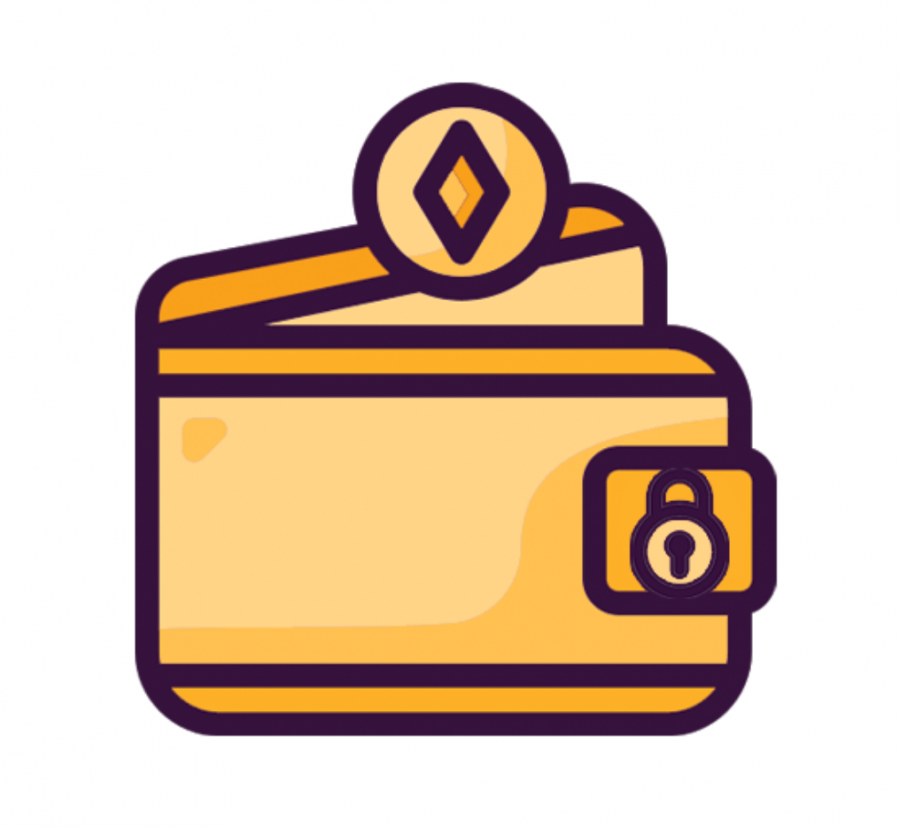
Since DeFi wallets are non-custodial, you will be the only person that can access the wallet since the private key is solely yours to view. This is where the ‘decentralized’ aspect comes into play, as no other centralized entity can view or manage your holdings. Due to this, DeFi wallets are considered safer than other wallet types since they aren’t susceptible to cyberattacks of the controlling entity.
Aside from being used to store crypto, DeFi wallets tend to come with a host of additional services. These include token swapping, yield farming, staking, crypto purchasing, and more. Specific DeFi wallets even allow you to browse the decentralized web, meaning that you can access the entire universe of supported dApps.
How do DeFi Wallets Work?
Whether you’re interested in a DeFi wallet for iOS and Android or simply wish to store your holdings through a browser-based wallet, it’s crucial to understand how these platforms work. As touched on above, DeFi wallets are inherently ‘non-custodial’, meaning that only you have access to your private key.
As defined by Gemini, the private key acts as proof of ownership and allows you to spend the funds that are contained within the wallet. Private keys can take numerous forms, although they tend to be long binary codes, hexadecimal codes, or QR codes. You may not actually have to handle your private key manually since most wallets contain a ‘seed phrase’ that encodes your private key as a backup.
Since your cryptocurrency holdings are stored on the blockchain rather than inside a DeFi wallet, private keys are crucial to showcasing ownership of those holdings. In essence, DeFi wallets keep your private key safe rather than your crypto. If you were to lose your private key and exhaust the recovery options, it’s likely that the crypto holdings tied to that key will be irreversibly lost.
Types of DeFi Wallet Accounts
Although most DeFi wallets offer services like crypto staking and token swapping, you can narrow the selection even further by opting for either a ‘cold’ or a ‘hot’ wallet. Let’s take a closer look at each of these wallet types:
- Cold Wallets – Cold wallets are a type of DeFi wallet that stores your holdings offline. These wallets are hardware-based and must be purchased from a third-party supplier, such as Trezor or Ledger. However, cold wallets are deemed the safest option since your private key is stored offline, making it virtually impossible to access without your permission.
- Hot Wallets – On the other hand, hot wallets are a type of DeFi wallet that is always connected to the internet. These wallets typically come in the form of an online platform, such as DeFi Swap, or a mobile app. Hot wallets are not considered as safe as cold wallets due to their perpetual connection to the internet, although they tend to be much more user-friendly and accessible than hardware wallets.
How to Choose the Best DeFi Wallet for You
Choosing a DeFi wallet can be tricky, especially if you are a newcomer to the market. To help streamline the decision-making process, detailed below are some of the most important factors to keep in mind:
Security Level
Your top priority should be the wallet’s security level, which is crucial to keeping your private key safe. Although hardware wallets offer the highest level of security, due to their offline nature, many ‘hot’ wallets also boast leading security protocols. These may include biometric authentication, two-factor authentication, standardization protocols, and many more.
Services Offered
Many DeFi wallets act as a ‘crypto bank‘, providing an easy way to store your holdings safely. However, the best DeFi wallets also offer additional features, such as token swapping, yield farming, staking, and more. Some wallets even provide a built-in ‘dApp browser’, enabling you to surf the decentralized web.
Supported Assets
The assets that a DeFi wallet supports will be dictated by the blockchain that it is compatible with. For example, if a wallet links to the Ethereum blockchain, it will likely support most ERC-20 and ERC-721 tokens. However, some wallets offer multi-chain support, which exponentially increases the number of tokens they can work with.
Fees
When connecting your DeFi wallet to bank account, you’ll likely want to review the wallet’s fees. Many wallets allow you to purchase crypto from within the platform’s interface, whether that be via credit/debit card or bank transfer. There will usually be a fee associated with this, along with network fees that accrue when a token is transferred – although these are dictated by the specific blockchain and not by the wallet provider.
User-Friendliness
Much like when choosing a DeFi staking platform, it’s a good idea to review the DeFi wallet’s user-friendliness – especially if you’re a beginner. Fortunately, platforms like DeFi Swap feature no advanced jargon or complex features, making it quick and easy to swap tokens and generate a yield right away.
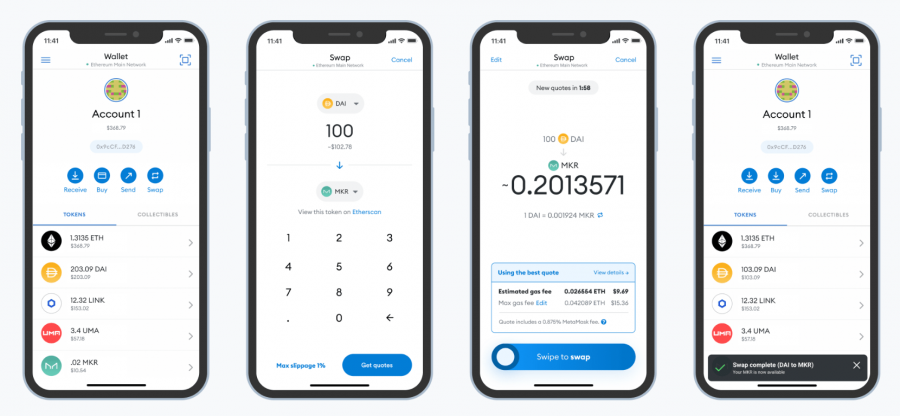
Accessibility
Finally, the wallet’s accessibility should also be considered. This refers to how easy it is to access your holdings swiftly, meaning that hot wallets tend to be the most accessible. In addition, platforms like DeFi Swap can be accessed through your web browser, making them the most accessible when using services like swapping and staking.
How to Get a DeFi Wallet
Before we conclude this guide, let’s touch on how to get started with a DeFi wallet right away. As noted earlier, DeFi Swap is our recommended platform for using decentralized finance mechanisms. Although DeFi Swap isn’t a ‘crypto wallet’ per se, the platform does offer most of the same services that these wallets do.
With that in mind, the four steps below will show you how to begin using DeFi Swap today – all from your laptop, tablet, or smartphone:
Step 1 – Set Up a Crypto Wallet
To use the DeFi Swap platform’s services, such as token swapping and staking, you’ll need a crypto wallet to fund your endeavours. Importantly, this crypto wallet must be able to connect to the Binance Smart Chain (BSC) since that is the blockchain network that DeFi Swap is hosted on.
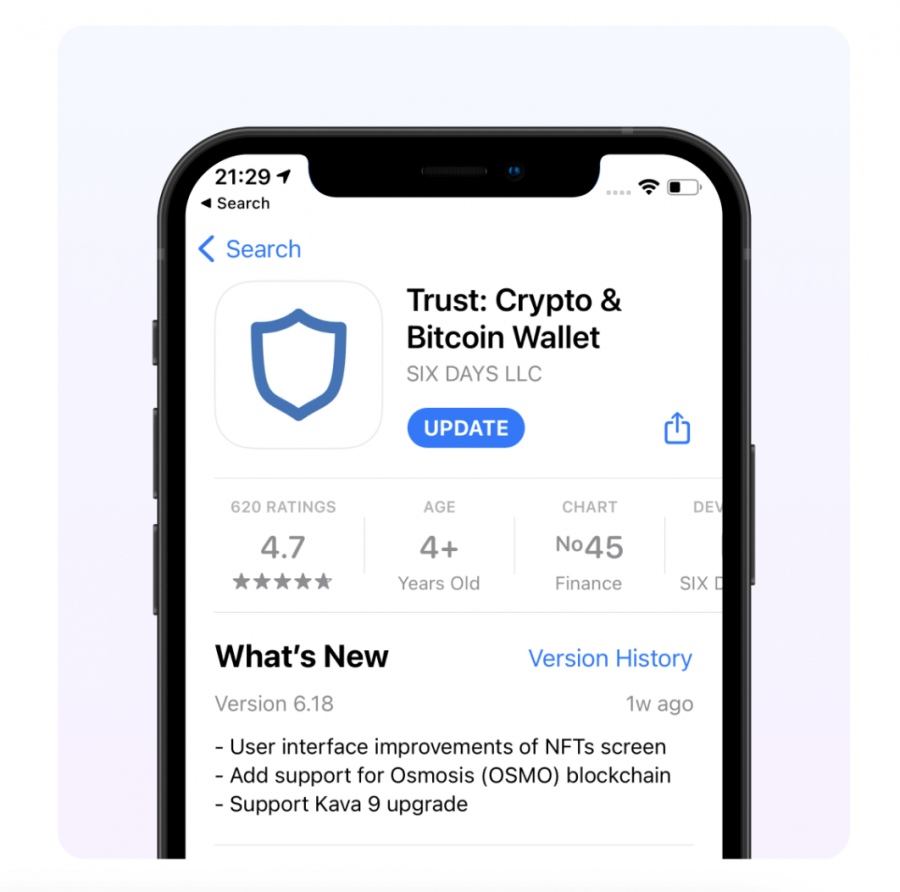
Step 2 – Buy Binance Coin (BNB)
 You’ll then need to buy Binance Coin (BNB) so that you can take part in token swapping, staking, or yield farming. You can purchase BNB from most respected brokers or crypto exchanges, where you can then transfer your tokens to the wallet you created in Step 1.
You’ll then need to buy Binance Coin (BNB) so that you can take part in token swapping, staking, or yield farming. You can purchase BNB from most respected brokers or crypto exchanges, where you can then transfer your tokens to the wallet you created in Step 1.
Step 3 – Connect Wallet to DeFi Swap
Go to the DeFi Swap homepage on your web browser and click ‘Connect to a Wallet’. Choose the wallet you are using and follow the on-screen instructions to make the link.
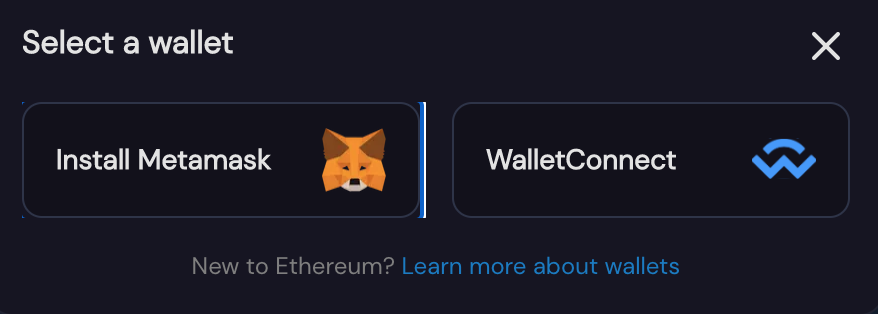
Step 4 – Begin Using DeFi Services
Once your wallet is connected, you are free to begin using DeFi Swap’s services. You can swap tokens using the ‘Swap’ facility or become a liquidity provider and earn a 0.25% fee on all trades, proportional to your share of the pool.

Best DeFi Wallets – Conclusion
This guide has taken a comprehensive look at the best DeFi wallets on the market, highlighting their fees, features, and security protocols. By partnering with any of the providers on our list, you’ll have a solid foundation to begin using DeFi mechanisms safely.
If you’re looking to get started with a DeFi wallet right away, our recommended provider is DeFi Swap. Using the DeFi Swap exchange, you’ll be able to swap, stake, and yield farm in minutes – all through the platform’s user-friendly online portal.
#cryptocurrency #cryptocurrencynews #cryptocurrencytrading #cryptocurrencyexchange #cryptocurrencymining #cryptocurrencymarket #cryptocurrencycommunity #cryptocurrencys #cryptocurrencyinvestments #cryptocurrencyinviestments #cryptocurrencyeducation #cryptocurrencyrevolution #allsortofcryptocurrency #cryptocurrencytop10 #cryptocurrency_news #instacryptocurrency #cryptocurrencymemes #investincryptocurrency #cryptocurrencyinvestment #cryptocurrencyisthefuture #cryptocurrencyinvesting #newcryptocurrency #cryptocurrencylife #cryptocurrencytrade #cryptocurrencylifeinvest #cryptocurrencymillionaire #cryptocurrencytrader #cryptocurrency_updates #tradingcryptocurrency #cryptocurrencysignals #cryptocurrencytradingplatform #cryptocurrencysolution #cryptocurrencytraders #cryptocurrency_for_dummies #cryptocurrencymalaysia #cryptocurrencytakingover #cryptocurrencybali #cryptocurrencyinvestors #cryptocurrencyindex #cryptocurrencyattorney

